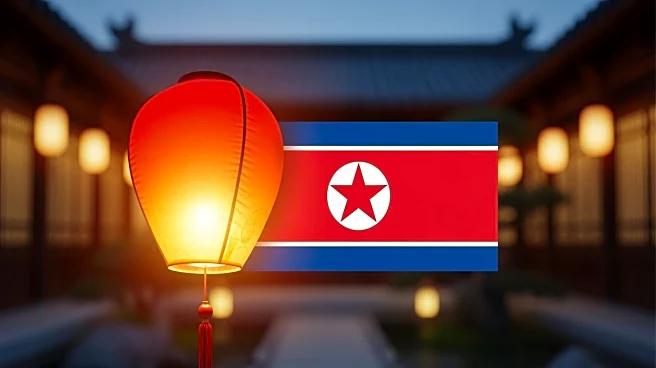What's Happening?
China's exports to North Korea saw a significant increase in September, marking a 30.75% year-on-year rise, according to customs data. This surge follows North Korean leader Kim Jong Un's visit to Beijing,
where he met with Chinese President Xi Jinping for the first time in six years. The diplomatic engagements between the two countries have intensified, with North Korean Foreign Minister Choe Son Hui visiting Beijing and China's Premier Li Qiang traveling to Pyongyang. Key exports from China to North Korea included soybean oil, processed hair and wool, petroleum bitumen, and granulated sugar. China remains North Korea's largest trading partner, providing an essential economic lifeline amid international sanctions.
Why It's Important?
The increase in Chinese exports to North Korea underscores the strengthening of bilateral ties between the two nations, which could have significant geopolitical implications. As North Korea faces international sanctions due to its nuclear weapons program, China's economic support is crucial for its survival. The enhanced diplomatic relations may lead to further cooperation in various sectors, potentially impacting regional stability and the balance of power in East Asia. China's role as North Korea's primary trading partner highlights its influence in the region and its ability to shape North Korea's economic and political landscape.
What's Next?
The ongoing diplomatic engagements suggest that China and North Korea may continue to deepen their cooperation, potentially leading to new agreements or joint initiatives. As China pledges to strengthen strategic communication and practical cooperation, the two countries might explore further economic partnerships or collaborative projects. The international community will likely monitor these developments closely, considering the implications for regional security and the enforcement of sanctions against North Korea.
Beyond the Headlines
The strengthening of China-North Korea relations raises questions about the effectiveness of international sanctions and the challenges in curbing North Korea's nuclear ambitions. The economic lifeline provided by China could enable North Korea to sustain its regime and continue its weapons development, complicating efforts for denuclearization. Additionally, the diplomatic engagements reflect China's strategic interests in maintaining stability on the Korean Peninsula and countering U.S. influence in the region.









